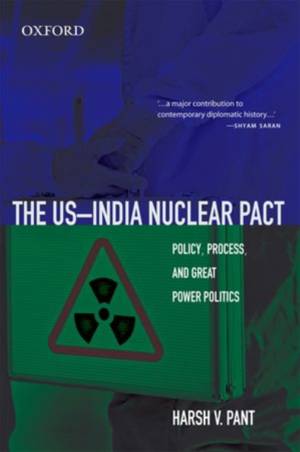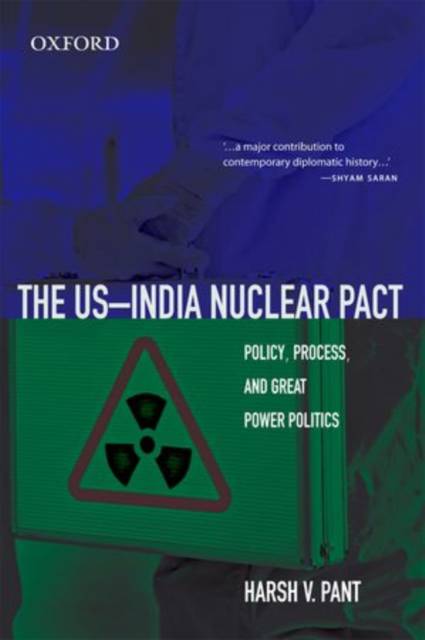
Door een staking bij bpost kan je online bestelling op dit moment iets langer onderweg zijn dan voorzien. Dringend iets nodig? Onze winkels ontvangen jou met open armen!
- Afhalen na 1 uur in een winkel met voorraad
- Gratis thuislevering in België vanaf € 30
- Ruim aanbod met 7 miljoen producten
Door een staking bij bpost kan je online bestelling op dit moment iets langer onderweg zijn dan voorzien. Dringend iets nodig? Onze winkels ontvangen jou met open armen!
- Afhalen na 1 uur in een winkel met voorraad
- Gratis thuislevering in België vanaf € 30
- Ruim aanbod met 7 miljoen producten
Zoeken
€ 56,45
+ 112 punten
Omschrijving
The US-India nuclear agreement has virtually rewritten the rules of the global nuclear regime by underlining India's credentials as a responsible nuclear state that should be integrated into the global nuclear order. Using the analytical framework of the levels of analysis approach, this book examines a range of factors at the structural, domestic, political, and individual level that have been instrumental in shaping the recent trajectory of US-India relationship, and which made the nuclear pact possible. The negotiating process as it evolved in the US and India is analyzed with a special focus on how political leaderships in the two states managed domestic opposition to the pact. The author locates the US-India nuclear agreement in the context of the broader debate in international relations over the role of international institutions in global politics. He contends that the successful conclusion of the agreement highlights the importance of strategic considerations in driving the non-proliferation priorities of great powers.
Specificaties
Betrokkenen
- Auteur(s):
- Uitgeverij:
Inhoud
- Aantal bladzijden:
- 172
- Taal:
- Engels
Eigenschappen
- Productcode (EAN):
- 9780198073963
- Verschijningsdatum:
- 9/10/2011
- Uitvoering:
- Hardcover
- Formaat:
- Genaaid
- Afmetingen:
- 145 mm x 221 mm
- Gewicht:
- 340 g

Alleen bij Standaard Boekhandel
+ 112 punten op je klantenkaart van Standaard Boekhandel
Beoordelingen
We publiceren alleen reviews die voldoen aan de voorwaarden voor reviews. Bekijk onze voorwaarden voor reviews.











